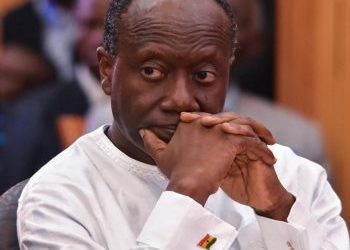Prominent Ghanaian journalist Manasseh Azure Awuni has raised serious concerns about the recent decision by the Public Procurement Authority (PPA) to deny Parliament’s request for external legal services.
In a Facebook reaction, Azure argues that the move undermines Parliament’s autonomy and questions why a practice permitted across various government agencies is being denied to the legislative branch. “Why deny Parliament approval when the executive arm of government, under which the Attorney-General operates, routinely uses private lawyers and law firms for government business?” he questioned, pointing out what he sees as a double standard in the government’s approach to legal representation.
In the document issued by the PPA, the agency states that Parliament should rely on the Attorney-General (AG) as its legal counsel, rejecting the Parliamentary Service’s request to hire an external law firm to handle specific cases.
However, Azure points out that the Attorney-General effectively serves as the “President’s lawyer,” representing the executive’s interests, which could pose a significant conflict of interest if Parliament were to require legal representation against executive actions. “How can Parliament use the President’s lawyer to fight the President in court?” he asked, highlighting the potential for bias.
According to Azure, denying Parliament the ability to hire an independent legal advisor restricts its ability to act as a check on executive power. He argues that this decision compromises the principle of separation of powers and hints at a strategic attempt to weaken the legislative branch. Describing the PPA’s ruling as a “Machiavellian tactic,” he suggested that it reflects an agenda to limit Parliament’s independence, placing it at a disadvantage when it comes to holding the executive accountable.
Azure emphasized that allowing Parliament access to external counsel would not only ensure fairness but also protect the public’s interest in transparency and accountability. He noted that multiple government agencies and ministries routinely hire private law firms without opposition, making the restriction on Parliament even more questionable. He described this decision as an erosion of democratic norms, one that risks shifting the balance of power in favor of the executive branch.
In conclusion, Azure’s critique of the PPA’s decision underscores the need for consistent and transparent policies regarding legal representation across government branches. By allowing the executive to employ private legal services while denying Parliament the same right, the government creates an imbalance that could limit Parliament’s effectiveness as a democratic institution. Azure urged for a reevaluation of the PPA’s stance, arguing that an independent Parliament, free from undue executive influence, is essential to Ghana’s democratic health and governance.










Discussion about this post